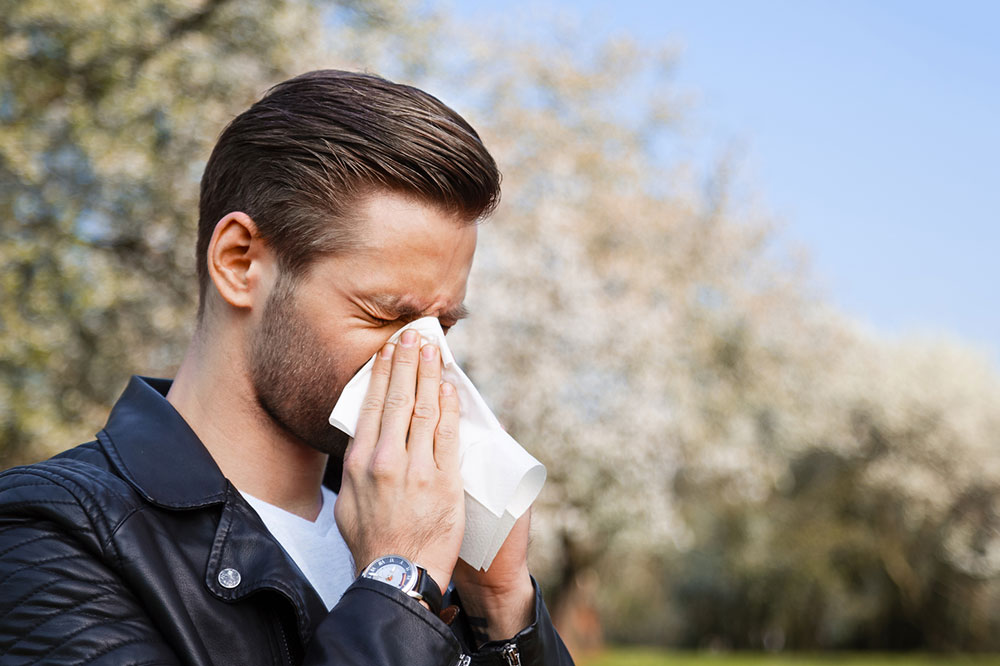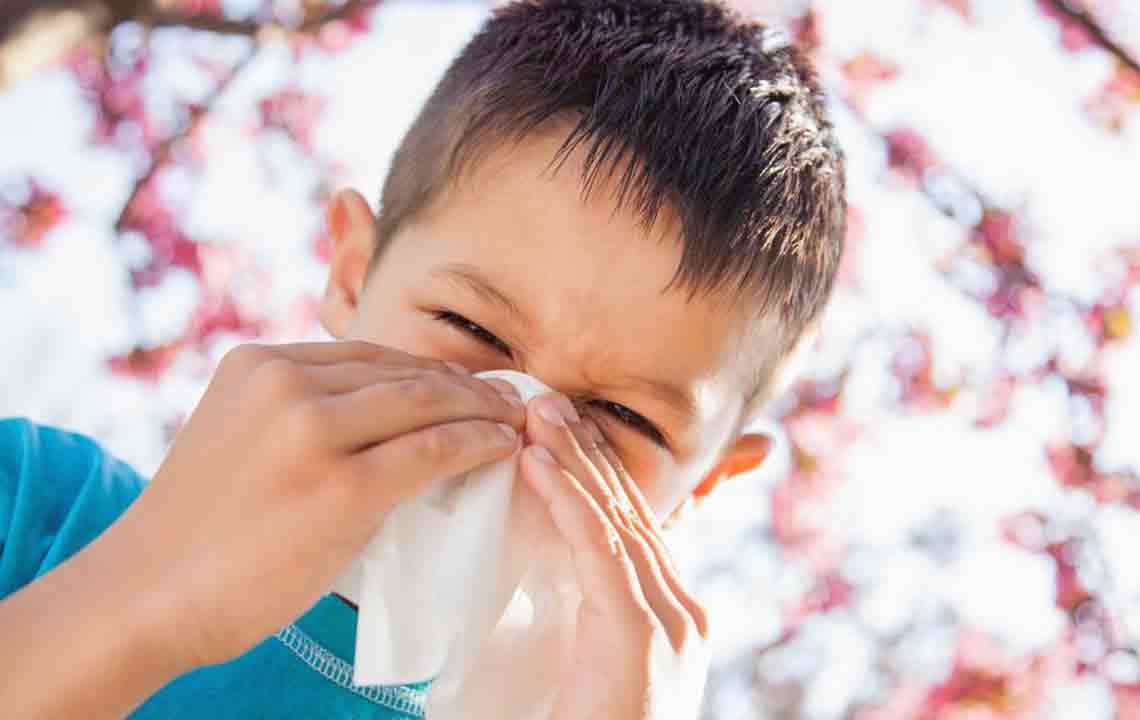Comprehensive Guide to Allergies: Causes, Symptoms, and Effective Management Strategies
This comprehensive article explores allergies, covering their causes, symptoms, and management strategies. It provides insight into common triggers such as pollen, dust, pet dander, foods, and insect stings, while also offering practical advice on how to identify and treat allergic reactions. With detailed information on symptoms like skin rashes, respiratory issues, and anaphylaxis, the article aims to educate readers on effective ways to control allergies through avoidance, medication, and lifestyle changes. Essential for anyone wanting to understand and manage allergies better for a healthier life.

Comprehensive Guide to Allergies: Causes, Symptoms, and Effective Management Strategies
Allergies are a ubiquitous health concern affecting millions worldwide. The term "allergy" is frequently heard, but many individuals might not fully understand what it entails or how it manifests in their daily lives. Allergies occur when the body's immune system reacts excessively to substances known as allergens, misidentifying them as threats even though these substances are typically harmless to most people. This overreaction results in a variety of uncomfortable and sometimes dangerous symptoms. Understanding the nuances of allergies — from triggers to symptoms, and most importantly, management — is essential for those affected, as well as for caregivers and healthcare providers. In this article, we delve into what allergies are, their common signs, primary triggers, and discus strategies for effective control and prevention.
Defining Allergies and How They Affect the Body
The immune system’s primary function is to defend the body against harmful pathogens like bacteria, viruses, and toxins. It does so by producing specialized proteins called antibodies, which identify and neutralize foreign invaders. However, in individuals with allergies, this system becomes hyper-responsive to allergens — substances that are generally harmless to the majority of people. These allergens include pollen, dust mites, animal dander, certain foods, insect stings, molds, and some medications.
When allergens enter the body, they stimulate an immune response that releases chemicals like histamines. These chemicals lead to inflammation and a series of symptoms that characterize allergic reactions. The severity of these symptoms can vary greatly depending on genetics, the type of allergen, exposure levels, and individual sensitivity. It is important to recognize that allergies are not just minor inconveniences; in some cases, they can cause life-threatening reactions requiring immediate medical attention.
Common Signs and Symptoms of Allergic Reactions
Recognizing the symptoms of allergies is crucial for prompt treatment and avoidance of severe complications. Signs and symptoms can manifest in different parts of the body, including the respiratory system, skin, gastrointestinal tract, and nasal passages. The clinical presentation varies widely among individuals and depends on the type and severity of the allergic exposure. The following sections outline some of the most common allergic reactions.
Food Allergies: Food hypersensitivity can cause swelling of the lips, tongue, face, and throat, accompanied by tingling sensations in the mouth. Additional symptoms often include nausea, abdominal pain, diarrhea, fatigue, hives, and in severe situations, anaphylaxis — a rapid, life-threatening allergic reaction that requires immediate medical intervention.
Drug Allergies: Some medications, such as antibiotics or pain relievers, can trigger allergic responses. Symptoms include skin rashes, hives, itching, swelling of the face and lips, difficulty breathing, and potentially anaphylaxis if left untreated.
Skin Allergies: Contact with allergens like certain cosmetics, cleaning products, or plants can induce skin reactions. These may involve itchy rashes, swelling, burning sensations, eczema, or hives. Bug bites or stings from insects such as bees or wasps can also produce localized swelling, pain, and an allergic skin response. Respiratory symptoms like cough, wheezing, chest tightness, or shortness of breath may develop if airborne allergens are involved and could escalate to systemic reactions.
Seasonal Allergies: Commonly known as hay fever or allergic rhinitis, this condition mimics cold symptoms but persists longer. It involves sneezing, nasal congestion, runny nose, itchy eyes, throat, and nose. Red, inflamed eyes (conjunctivitis) are also typical. Seasonal allergies often result from pollen, mold spores, and other airborne allergens prevalent during specific times of the year.
What Causes Allergic Reactions and How to Identify Triggers
Understanding the triggers of allergies helps in management and prevention. Common allergens include environmental factors such as dust mites, pollen from trees, grasses, and weeds, pet dander, mold spores, and certain foods like nuts, shellfish, eggs, and dairy. Insect stings and bites can also provoke allergic reactions, especially in sensitive individuals. Genetic predisposition plays a role, but inheriting a family allergy does not guarantee development. Multiple triggers can coexist, making comprehensive management essential for reducing exposure.
While not all allergies are preventable, many can be effectively managed with lifestyle modifications, medication, and allergen avoidance strategies. For example, using air purifiers, regularly cleaning dust environments, keeping pets out of bedrooms, and wearing protective gear during high pollen seasons can significantly reduce exposure. Moreover, awareness of one's specific allergies enables better control and avoids potentially dangerous situations.
Effective Treatment and Management of Allergies
The good news is that most allergy symptoms can be controlled with appropriate treatment. Over-the-counter antihistamines, decongestants, nasal sprays, and eye drops provide relief for many common symptoms. For more severe or persistent allergies, healthcare professionals may prescribe corticosteroids, allergy immunotherapy (allergy shots), or other specialized treatments tailored to individual needs.
Accurate diagnosis through allergy testing — such as skin prick tests or blood tests — allows for personalized management plans. Identifying specific allergens enables individuals to avoid triggers and adopt lifestyle adjustments to minimize reactions. Patients are also advised to carry emergency medication like epinephrine auto-injectors if at risk for anaphylaxis.
Prevention is always better than cure; maintaining an allergen-quiet environment and being vigilant about possible triggers can significantly improve quality of life. Education and awareness are key components for managing allergies effectively.
In conclusion, understanding allergies comprehensively — from their causes to symptoms and management options — empowers individuals to lead healthier, more comfortable lives. Recognizing triggers, seeking proper diagnosis, and adhering to treatment plans are vital steps toward controlling allergic reactions and preventing complications. If you suspect you have allergies, consult with healthcare providers to develop a personalized approach to stay safe and symptom-free.





